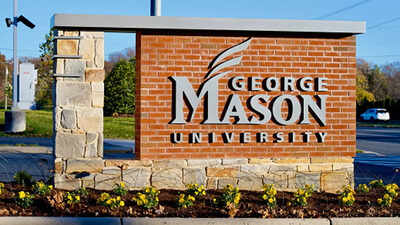America may scrap OPT putting Indian talent at risk: Can the US tech economy survive the blow?

In the power corridors of Washington, the Optional Practical Training (OPT) programme is being recast—not as a bridge between global talent and American opportunity—but as a backdoor for job theft. H.R. 2315, a bill with anti-immigrant optics and economic blind spots, seeks to terminate post-study work rights for international students on F-1 visas. Known as the “Fairness for High-Skilled Americans Act of 2023”, it was introduced by Republican Congressman Paul Gosar on April 10, 2023, and is still under committee review as of mid-2025. Spearheading the crackdown are voices like Jessica Vaughan of the Center for Immigration Studies, who has termed OPT a “shadow guestworker programme,” and Joseph B. Edlow, newly confirmed USCIS Director, testified that he plans to “remove the ability for employment authorizations for F‑1 students beyond the time that they are in school. ” For them, OPT is not merely a flawed visa extension—it’s a systemic loophole ripe for repeal.But pause the narrative of freeloaders and fraud. Because if OPT disappears, it’s not India that will bleed the most. It’s America. And not in theory—in payrolls, patents, and productivity.
The Numbers: A reality check, straight from SEVIS
According to the 2024 SEVIS “By the Numbers” report (U.S. Immigration and Customs Enforcement),
- 194,554 students were on OPT last year—a 21.1% increase from 2023.
- 95,384 students were on
STEM-OPT (a 24-month extension for tech and science graduates). - Indian students accounted for 48% of all STEM-OPT participants—that’s nearly 45,800 engineers, coders, analysts, and scientists powering American firms.
So, for every two highly-skilled STEM graduates working in the US on OPT extensions, one is Indian.The total Indian share across all OPT categories is conservatively estimated between 25–30%, suggesting roughly 49,000 to 58,000 Indian students are in American workforces right now under OPT.
OPT isn’t robbing Americans of their jobs: It’s sustaining America’s tech empire
Critics often argue that OPT undercuts US graduates. What they overlook is that America’s tech economy runs on global skill, and it is Indian students who often shoulder the lion’s share of the load.Consider this:
- Amazon hired 5,379 OPT students and 6,632 STEM-OPT extension workers in 2024 alone (source: ICE SEVIS Employer Data, 2024).
- Google, Apple, Microsoft, and Tesla follow suit with thousands more hires from the same pool.
- Citigroup, Oracle, Bloomberg, Qualcomm, NVIDIA are also among top STEM-OPT employers.
These are not internships or coffee-fetching gigs. These are roles in AI, cybersecurity, quantum computing, sustainable energy, and algorithmic finance. These are the engines of the Fourth Industrial Revolution.
What happens if India loses OPT?
Let’s be clear—it will hurt Indian students. OPT is their runway to repay loans, gain experience, and build global careers.
- Estimates suggest that the average Indian student spends $60,000–$100,000 on a US STEM degree. Without OPT, the ROI vanishes.
- Their post-study pathways collapse—no work experience, no H-1B bridge, no long-term settlement.
- Over 28% of Indian enrolment dropped year-on-year (Mar 2024–Mar 2025), according to SEVIS data analysed by Boston College’s Chris Glass—an early warning of policy impact.
But here’s the uncomfortable truth: Indian talent will reroute. Indian remittances will stabilise.
When America loses OPT, what actually breaks?
Not just student dreams—America’s tech future, university funding, and innovation pipeline all start to collapse.
University Revenue
Without OPT, U.S. universities become overpriced diplomas without job prospects. Why would anyone pay $100,000 for a degree that ends in deportation? NAFSA estimates international students (led by Indians) contribute $33 billion to the US economy annually. Kill OPT, and watch that cash vanish.
Tech Talent
There is a reason why the Business Roundtable, TechNet, and the U.S. Chamber of Commerce have all opposed H.R. 2315. It’s not compassion—it’s code. Without Indian data scientists, machine learning engineers, and cloud architects, your next Google update might be 12 months late.
Start-up Innovation
From Sundar Pichai (Google) to Arvind Krishna (IBM), from scores of MIT PhDs to Carnegie Mellon AI researchers—many began their journey with an F-1 visa and OPT. Remove that step, and you cut off tomorrow’s unicorns at the root.
OPT isn’t a loophole, it’s a ladder
Those cheering for OPT’s end argue it’s a “backdoor to employment.” Well, America never promised citizenship to international students—but it promised opportunity. OPT is not a charity. It is an earned bridge, after two years of exorbitantly priced education, rigorous vetting, and visa scrutiny.
The bottom line: Who actually loses?
Indian students lose jobs, loans, and peace of mind. America loses competitiveness, labour, and credibility.But while Indian families can pivot to Canada, or Germany’s tuition-free STEM degrees, America cannot outsource innovation at will.Without OPT, the US education system becomes a global product with no after-sales service. And if customers walk away, don’t blame China or quotas—blame policy cannibalism.





